
KUALA LUMPUR: The government is adopting a holistic approach to prepare Malaysia’s workforce for the challenges posed by automation and artificial intelligence (AI), including the risk of job displacement, says Human Resources Minister Steven Sim.
He said the ministry is currently undertaking a comprehensive review through the National Labour and Human Resources Policy Study, which includes aspects of reskilling and upskilling. The study is expected to be completed in 2026.
“To minimise the negative impact and maximise the positive potential of technological advancement, we are implementing several major initiatives focusing on human capital development through reskilling and upskilling, strategic industry-academia partnerships, and strengthened social protection programmes,” Sim said in a parliamentary written reply on Monday (July 28).
He was responding to a question from Datuk Awang Hashim (PN-Pendang), who had asked whether the government intends to introduce a large-scale policy for reskilling and upskilling workers at risk of losing their jobs due to advancements in AI, along with the implementation and funding details of such efforts.
Sim said that as a first step, TalentCorp has conducted a study on the impact of AI, digitalisation, and the green economy on Malaysia’s workforce.
Based on the findings, he said the ministry has developed the MyMAHIR.my digital portal as a one-stop reference centre for future job roles, required skills and training programmes aligned with current labour market needs.
To ensure skills development meets industry demands, he said the MyMAHIR Future Skills Talent Council (FSTC) has also been established, led by key industry players.
“This council is responsible for identifying training requirements and selecting suitable training centres,” he said.
Sim added that the Department of Skills Development (JPK) has taken proactive steps to address the challenges of automation by developing new National Occupational Skills Standards (NOSS) geared towards future job demands.
“So far, more than 120 NOSS related to the Fourth Industrial Revolution (IR4.0) have been introduced.
“These standards cover fields such as industrial automation, robotics, AI, cyber-physical systems and data analytics, and are implemented in over 3,600 accredited centres using modular approaches to accelerate workforce reskilling and upskilling,” he said.
According to him, government is also expanding the Industry-Based Academy (ADI) programme, which allows existing employees to undergo training at their workplace without having to leave their jobs.
He said this approach is supported by flexible certification pathways, such as Recognition of Prior Achievement (PPT) and micro-credentials, as well as strategic industry collaboration to involve employers directly.
“These efforts aim to produce a resilient workforce capable of transitioning from high-risk jobs to emerging growth sectors like smart logistics, renewable energy, agricultural automation and cybersecurity.”
At the same time, he said the Human Resource Development Corporation (HRD Corp) continues to provide upskilling and reskilling programmes through levy contributions from eligible employers.
“As of June 2025, 101,506 employers and 4.84 million workers have registered with HRD Corp, with 24.75 million training placements approved in the same period.”
Meanwhile, he said the Social Security Organisation (Perkeso) has also been actively offering reskilling and upskilling initiatives to insured individuals who have lost their jobs and require new skills to remain employable.
“Between Jan 1 and July 4, 2025, a total of 5,403 individuals participated in these programmes.”
To support access to training, Sim said the Skills Development Fund Corporation (PTPK) has allocated RM100 million in training grants under the 2025 High-Impact Technical and Vocational Education and Training (TVET) Financing Scheme.
“This funding will benefit 4,167 trainees across seven key high-growth, high-value sectors, including artificial intelligence,” he said.

Yunus, A., Tan, T., & Gimino, G. (2025, July 29). Govt taking holistic approach to prepare workforce for AI disruptions, HR Minister tells Parliament. The Star. Retrieved August 19, 2025, from https://www.thestar.com.my/news/2025/07/29/govt-taking-holistic-approach-to-prepare-workforce-for-ai-disruptions-hr-minister-tells-parliament
- PERKESO reforms ensure comprehensive protection for all workers, says HR Minister
 KUALA LUMPUR: The Human Resources Ministry, through the Social Security Organisation (PERKESO), continues to undertake comprehensive reforms to strengthen social protection for all contributors, including gig workers and foreign workers, says Steven Sim Chee Keong. The Human Resources Minister said that 10 major reforms have been implemented over the past two years to provide more […]
KUALA LUMPUR: The Human Resources Ministry, through the Social Security Organisation (PERKESO), continues to undertake comprehensive reforms to strengthen social protection for all contributors, including gig workers and foreign workers, says Steven Sim Chee Keong. The Human Resources Minister said that 10 major reforms have been implemented over the past two years to provide more […] - KESUMA’s drive for fair work and shared progress
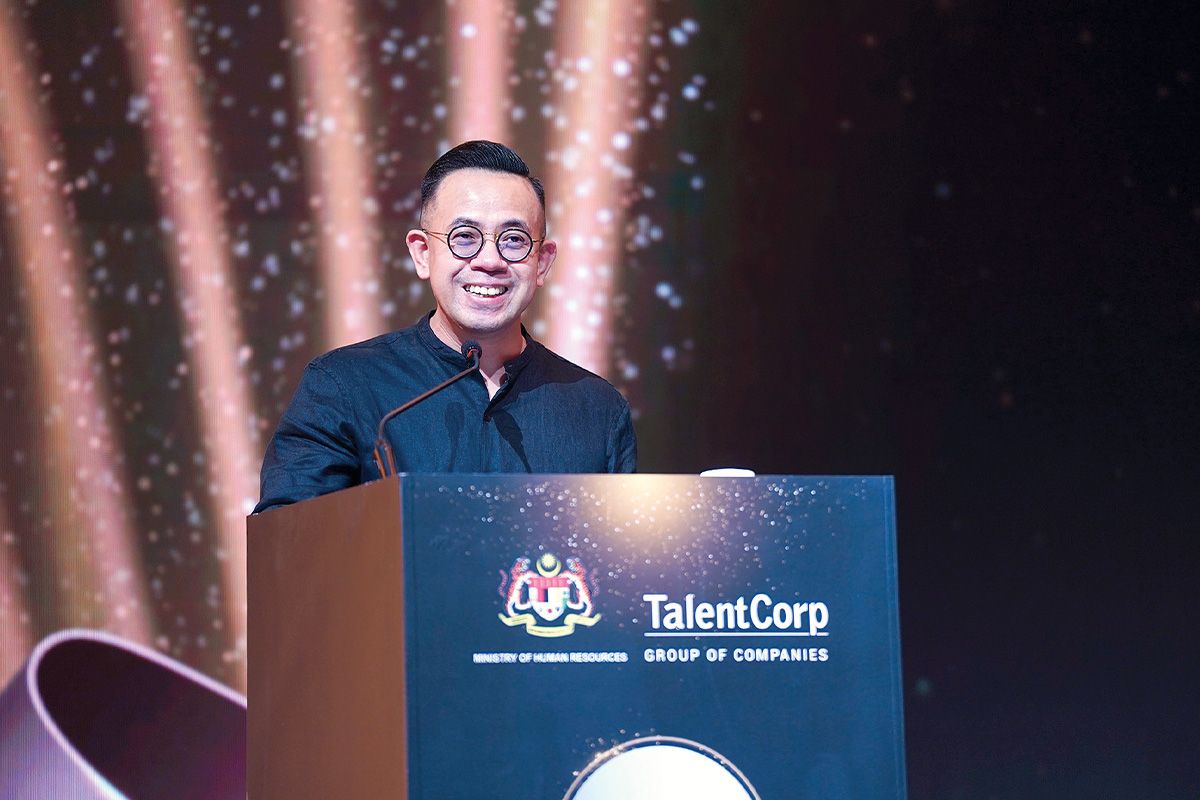 The LIFE AT WORK Awards (LAWA) hosted by Talent Corporation Malaysia Bhd (TalentCorp), celebrates its 10th edition, solidifying its influence as a platform that drives transformation in diversity, equity and inclusion (DEI) in Malaysian workspaces. With concerns regarding human capital rising amid the ubiquity of artificial intelligence (AI), it is crucial now more than ever […]
The LIFE AT WORK Awards (LAWA) hosted by Talent Corporation Malaysia Bhd (TalentCorp), celebrates its 10th edition, solidifying its influence as a platform that drives transformation in diversity, equity and inclusion (DEI) in Malaysian workspaces. With concerns regarding human capital rising amid the ubiquity of artificial intelligence (AI), it is crucial now more than ever […] - ‘Many employers not making mandatory Perkeso, EPF contributions’
 KLANG: The Human Resources Ministry has detected a worrying number of employers still refusing to register or make mandatory contributions to the Social Security Organisation (Perkeso) and Employees Provident Fund (EPF) for their workers. The ministry stressed that such actions violated employees’ rights and denied them basic protection. Deputy Human Resources Minister Datuk Seri Abdul […]
KLANG: The Human Resources Ministry has detected a worrying number of employers still refusing to register or make mandatory contributions to the Social Security Organisation (Perkeso) and Employees Provident Fund (EPF) for their workers. The ministry stressed that such actions violated employees’ rights and denied them basic protection. Deputy Human Resources Minister Datuk Seri Abdul […] - Nearly 500 labour law breach cases detected
 KLANG: Almost 500 investigation papers have been opened against employers for breaches of labour laws as of Nov 1, says Deputy Human Resources Minister Datuk Seri Abdul Rahman Mohamad. Among the most common labour law offences are employers’ failure to make the mandatory contributions to the Social Security Organisation (PERKESO) or the Employees Provident Fund […]
KLANG: Almost 500 investigation papers have been opened against employers for breaches of labour laws as of Nov 1, says Deputy Human Resources Minister Datuk Seri Abdul Rahman Mohamad. Among the most common labour law offences are employers’ failure to make the mandatory contributions to the Social Security Organisation (PERKESO) or the Employees Provident Fund […] - MOHR Won’t Tolerate Companies Preventing Workers From Forming Union
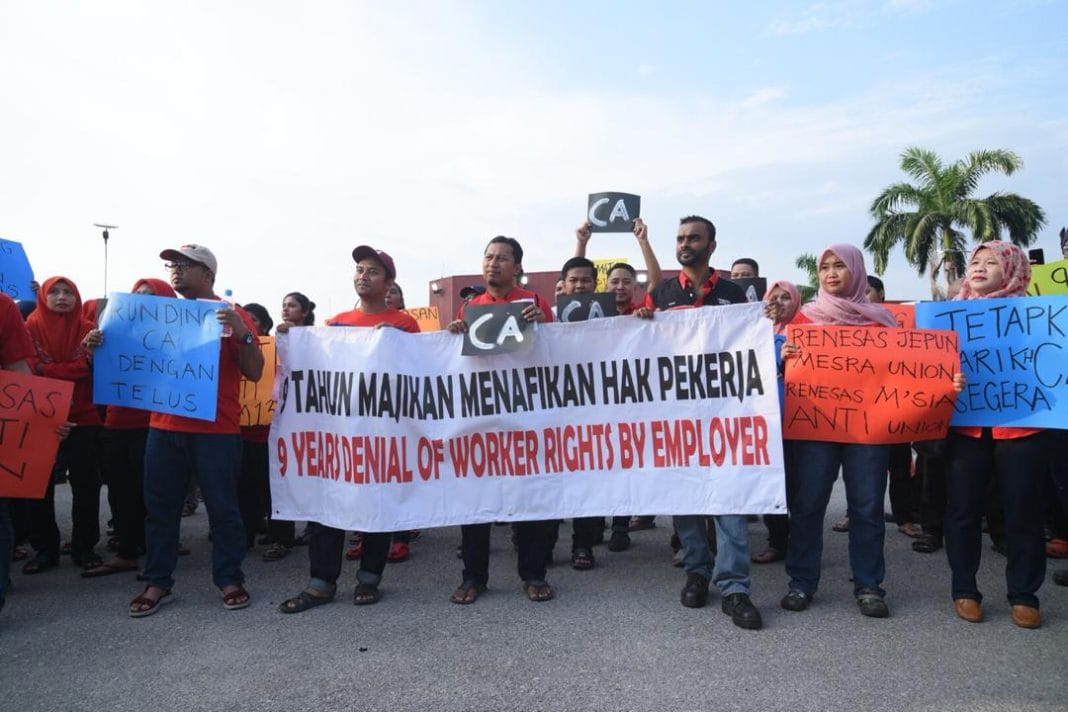 The Industrial Relations Department of the Human Resources Ministry (MOHR) has reaffirmed its commitment to safeguarding workers’ rights after a gathering and memorandum submission by several labour unions concerning alleged union-busting practices. The department emphasised that it respects the constitutional right to peaceful assembly and freedom of speech, while reiterating that workers’ rights to form […]
The Industrial Relations Department of the Human Resources Ministry (MOHR) has reaffirmed its commitment to safeguarding workers’ rights after a gathering and memorandum submission by several labour unions concerning alleged union-busting practices. The department emphasised that it respects the constitutional right to peaceful assembly and freedom of speech, while reiterating that workers’ rights to form […] - Court Orders Employer To Pay 93 Migrant Workers Outstanding Wages
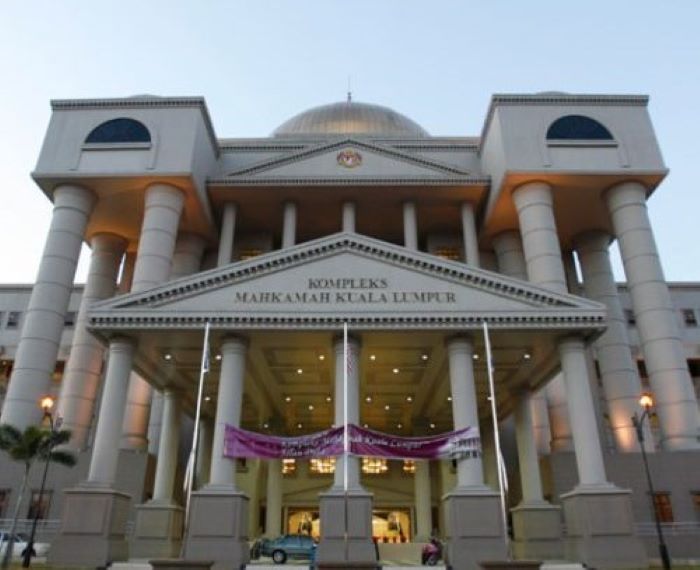 Human Resources Minister Steven Sim Chee Keong has welcomed the Shah Alam High Court’s decision to uphold an earlier ruling by the Labour Court, ordering an employer to pay outstanding wages to 93 migrant workers who were left without work upon arrival in Malaysia. The High Court on 31 October 2025 affirmed the Labour Court’s […]
Human Resources Minister Steven Sim Chee Keong has welcomed the Shah Alam High Court’s decision to uphold an earlier ruling by the Labour Court, ordering an employer to pay outstanding wages to 93 migrant workers who were left without work upon arrival in Malaysia. The High Court on 31 October 2025 affirmed the Labour Court’s […] - No tolerance for employers who withhold wages, says HR Minister
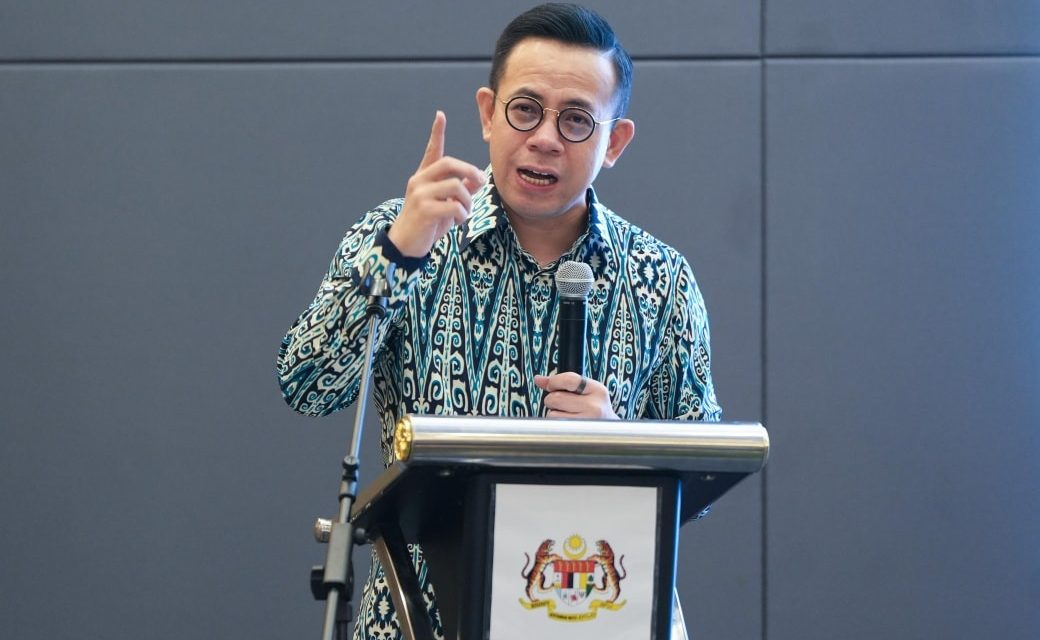 The Ministry of Human Resources (KESUMA) has urged all employers to take heed of the recent Shah Alam High Court ruling which upheld a decision in favour of 93 migrant workers in an unpaid wage case. Human Resources Minister Steven Sim Chee Keong said the Oct 31 decision sends a strong message that failure to […]
The Ministry of Human Resources (KESUMA) has urged all employers to take heed of the recent Shah Alam High Court ruling which upheld a decision in favour of 93 migrant workers in an unpaid wage case. Human Resources Minister Steven Sim Chee Keong said the Oct 31 decision sends a strong message that failure to […] - THE HEART WORK REVOLUTION
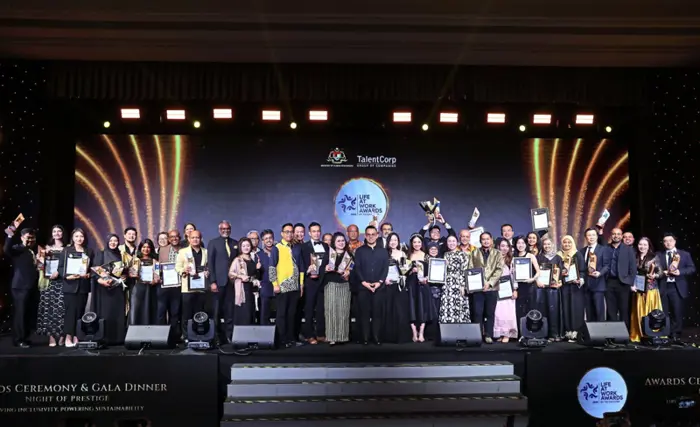 TEN years after its inception, the Life at Work Awards (LAWA) 2025 marked not just a milestone but a movement that celebrates how Malaysia’s workplaces are evolving with compassion, flexibility and purpose. Hosted by Talent Corporation Malaysia Bhd (TalentCorp), the gala night honoured organisations leading the way in shaping a fairer, more progressive, human-centred world […]
TEN years after its inception, the Life at Work Awards (LAWA) 2025 marked not just a milestone but a movement that celebrates how Malaysia’s workplaces are evolving with compassion, flexibility and purpose. Hosted by Talent Corporation Malaysia Bhd (TalentCorp), the gala night honoured organisations leading the way in shaping a fairer, more progressive, human-centred world […] - Group wants clear framework, pilot projects before expanding EIS to gig workers
 PETALING JAYA: The Malaysian Industrial, Commercial and Service Employers Association (Micsea) has called on the government to set a clear policy framework and run pilot projects before expanding the Employment Insurance System (EIS) to gig and platform-based workers. The association said the plan, announced by human resources minister Steven Sim in the Dewan Rakyat on […]
PETALING JAYA: The Malaysian Industrial, Commercial and Service Employers Association (Micsea) has called on the government to set a clear policy framework and run pilot projects before expanding the Employment Insurance System (EIS) to gig and platform-based workers. The association said the plan, announced by human resources minister Steven Sim in the Dewan Rakyat on […] - Employer group seeks clarity on foreign worker pay rules after court ruling
 KUALA LUMPUR (Nov 3): The Malaysian Industrial Commercial & Service Employers Association (MICSEA) is calling on the Ministry of Human Resources (MOHR) to issue clear and structured guidelines on wage payment timelines for foreign workers, following a recent court ruling that employers must pay wages from the moment these workers arrive in Malaysia. The call […]
KUALA LUMPUR (Nov 3): The Malaysian Industrial Commercial & Service Employers Association (MICSEA) is calling on the Ministry of Human Resources (MOHR) to issue clear and structured guidelines on wage payment timelines for foreign workers, following a recent court ruling that employers must pay wages from the moment these workers arrive in Malaysia. The call […]
